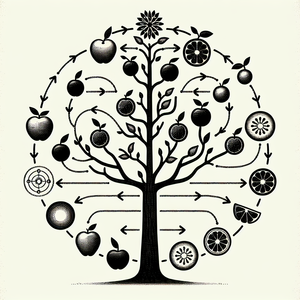The Role of Mental Health in Eminem's Lyrics

Eminem's upbringing was marked by adversity, which has profoundly influenced his music. Born in 1972 in St. Joseph, Missouri, he faced a childhood characterized by poverty, bullying, and familial instability. These challenges are intricately woven into his lyrics, allowing fans to connect with his experiences on a deeply personal level. For instance, in "Lose Yourself," Eminem encapsulates the urgency and pressure of seizing opportunities, reflecting his own experiences of striving against the odds. Similarly, "Mockingbird" reveals his vulnerabilities as a father, highlighting the emotional toll of his struggles. This song serves as a heartfelt letter to his daughter, Hailie, showcasing his desire to protect her and provide a better life, even amidst his personal turmoil. Through these narratives, Eminem not only shares his story but also creates a space for listeners to reflect on their own challenges, fostering a sense of connection and understanding.
Substance Abuse and Recovery
Eminem's battle with substance abuse is a recurring theme that permeates his music. Following the success of "The Marshall Mathers LP," he succumbed to addiction, a struggle he candidly addresses in tracks like "Cleanin' Out My Closet" and "Not Afraid." In "Cleanin' Out My Closet," Eminem confronts his demons, revealing the pain and regret associated with his past actions and relationships. This song serves as a cathartic release, allowing him to process his experiences publicly. Conversely, "Not Afraid" marks a pivotal moment in his journey to recovery. In this empowering anthem, he declares his resolve to overcome adversity, sending a message of hope to listeners grappling with similar issues. By openly discussing his addiction, Eminem not only destigmatizes substance abuse but also encourages fans to seek help, illustrating that recovery is attainable.
Depression and Anxiety
Beyond addiction, Eminem's lyrics often delve into themes of depression and anxiety. In "Stan," he explores the darker side of fame and the isolating effects that accompany celebrity. The song tells the story of an obsessive fan who mirrors Eminem's struggles, highlighting the profound impact of mental health on his life and career. The narrative of "Stan" serves as a poignant reminder of the unseen battles many individuals face, regardless of their success or public persona. Eminem's willingness to confront these difficult topics resonates deeply with fans, fostering a sense of solidarity among those who may feel alone in their struggles. By exposing his vulnerabilities, he not only humanizes himself but also encourages an ongoing conversation about mental health, challenging the stigma that often surrounds these issues.
Cultural Impact and Broader Conversations
Eminem's exploration of mental health not only reflects his personal journey but also contributes to a larger cultural dialogue. In an industry often dominated by bravado and machismo, his openness about vulnerability has paved the way for other artists to share their struggles. Contemporary hip-hop artists, such as Logic and Kid Cudi, have followed in Eminem's footsteps, addressing mental health topics in their music. Logic's "1-800-273-8255," which centers on suicide prevention, and Kid Cudi's candid discussions about his battles with depression and anxiety underscore the importance of mental health awareness in today's society. By sharing their stories, these artists continue the conversation that Eminem initiated, helping to dismantle the stigma surrounding mental health in the music industry.
Eminem's lyrics serve as a powerful testament to the complexities of mental health, resonating with listeners worldwide. His candid exploration of personal struggles, from addiction to depression, not only provides solace to those facing similar challenges but also fosters a broader understanding of mental health issues in society. As the conversation around mental health continues to evolve, Eminem's role as an advocate through his music remains vital. His journey from pain to recovery serves as an inspiration, reminding us that vulnerability can be a source of strength and connection. Through his artistry, Eminem has not only transformed his own life but has also contributed significantly to the ongoing dialogue surrounding mental health, empowering countless individuals to confront their own struggles.
Mental Health Counselor
Mental health clinics, hospitals, and rehabilitation centers
Core Responsibilities
Provide individual and group therapy sessions to clients dealing with mental health issues, including anxiety, depression, and substance abuse.
Develop personalized treatment plans based on clients' specific needs and progress.
Conduct assessments and evaluations to monitor mental health conditions and treatment effectiveness.
Required Skills
Strong communication and active listening skills to foster a trusting therapeutic relationship.
Proven ability to apply various therapeutic techniques, such as Cognitive Behavioral Therapy (CBT) or Dialectical Behavior Therapy (DBT).
Familiarity with mental health regulations and ethical practices.
Substance Abuse Specialist
Rehabilitation facilities, outpatient clinics, and community health organizations
Core Responsibilities
Work with individuals struggling with addiction, providing counseling and support throughout their recovery journey.
Facilitate educational workshops and support groups to promote awareness and coping strategies.
Collaborate with healthcare professionals to create comprehensive treatment plans.
Required Skills
Knowledge of addiction treatment modalities and relapse prevention strategies.
Empathy and patience to effectively engage clients in their recovery process.
Certification in substance abuse counseling or a related field.
Clinical Psychologist
Private practices, hospitals, and academic institutions
Core Responsibilities
Conduct psychological assessments and diagnostic testing to evaluate mental health disorders and treatment needs.
Provide psychotherapy to individuals, couples, and families, focusing on various therapeutic approaches.
Engage in ongoing research or clinical trials to contribute to the advancement of psychological practices.
Required Skills
Doctoral degree in psychology (Ph.D. or Psy.D.) and state licensure to practice.
Expertise in specific areas, such as child psychology or trauma-focused therapy.
Strong analytical skills to interpret complex psychological data.
Music Therapist
Hospitals, schools, rehabilitation centers, and private practice
Core Responsibilities
Use music interventions to address emotional, cognitive, and social needs of clients with mental health challenges.
Design and implement therapeutic music programs tailored to individual and group needs.
Evaluate client progress and adapt interventions based on response to therapy.
Required Skills
Bachelor’s or Master’s degree in music therapy, along with board certification.
Proficient in various musical instruments and vocal techniques.
Ability to create a supportive and engaging therapeutic environment.
Public Health Educator (Mental Health Focus)
Nonprofit organizations, governmental health departments, and educational institutions
Core Responsibilities
Develop and implement community programs aimed at raising awareness about mental health issues and resources.
Conduct workshops and seminars to educate diverse populations on mental health topics, stigma reduction, and coping strategies.
Evaluate program effectiveness and make data-driven improvements to outreach efforts.
Required Skills
Strong public speaking and presentation skills to effectively communicate with various audiences.
Ability to analyze health data and trends to inform educational strategies.
Knowledge of mental health resources and community services.


